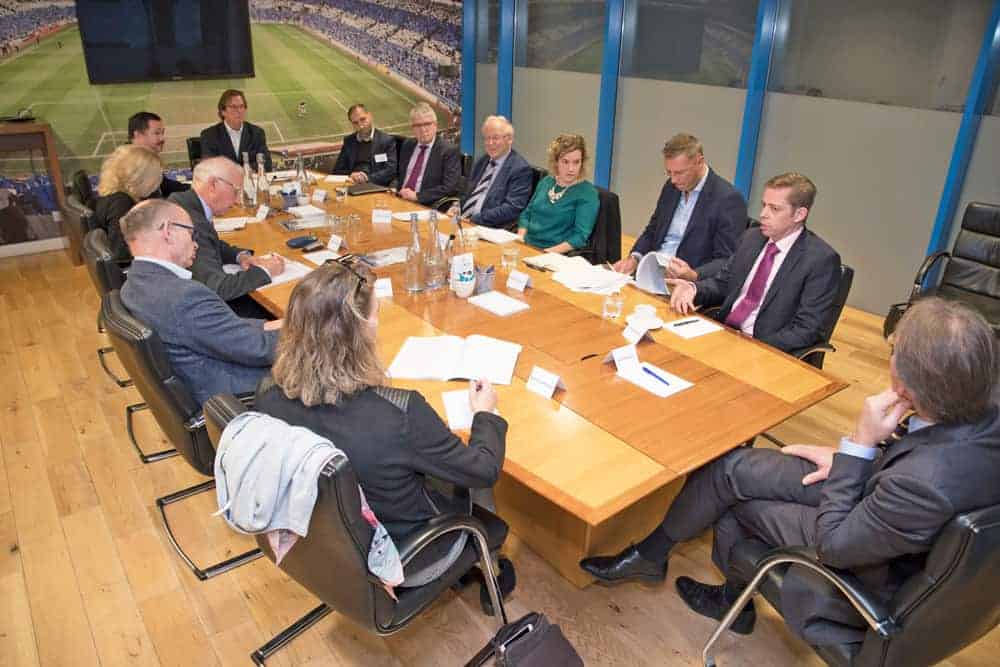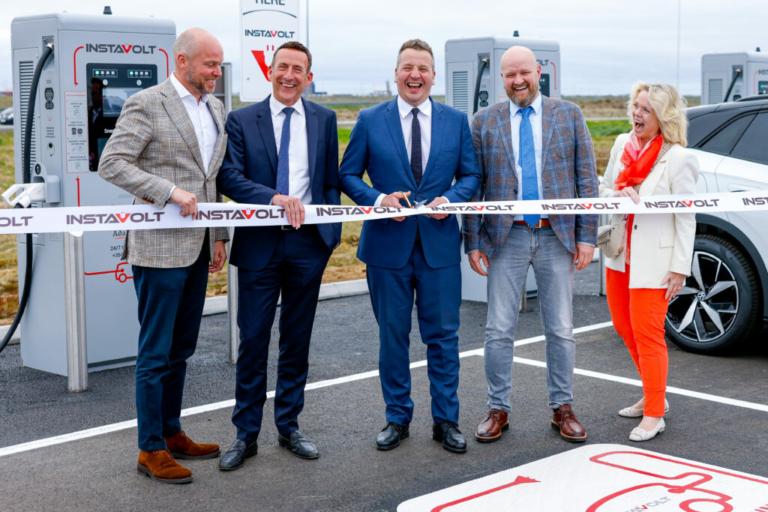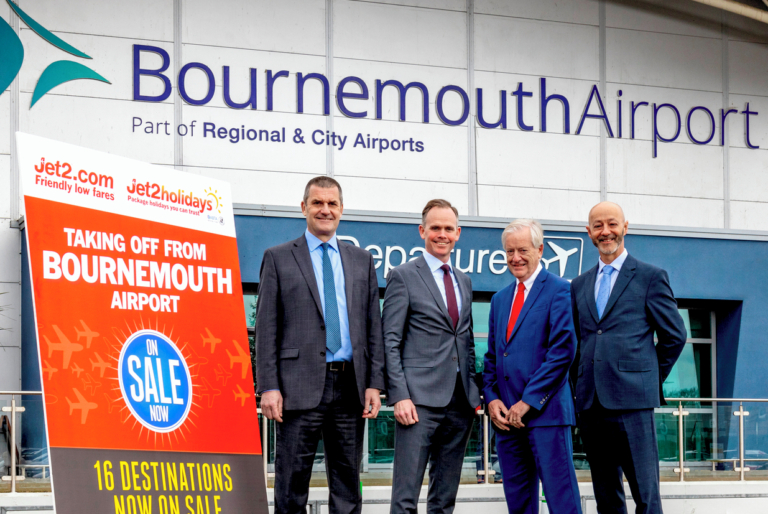International trade in a changing landscape

The Business Magazine hosted this roundtable event in Southampton with Charles Kendall Freight, HiFX and UK Export Finance. Tim Wickham reports on …
The current state of international trade
The panel began by discussing a range of issues facing companies that export or operate overseas. CNS Online provides shipping computer systems between ports and freight forwarders and is well positioned to gauge how volumes of traffic are changing. Matthew Bradley said: “The number of laden boxes has reduced in recent months. That might be due to changes in the way shipping lines are operating, or it might reflect an underlying trend.”
Charles Kendall Freight is a global supply chain solutions business. Peter Sunderland noted: “A lot of goods are going overland into mainland Europe, for example, by rail.”
BPC Energy exports around half its power protection products, mainly to the Middle East and Africa. Malcolm Henley said: “A large majority of our projects and contracts have slowed down. I think that’s probably due to negative thinking or a lack of understanding about what is going to happen about Brexit. As a UK exporter we are also caught up in a world economy suffering from the low price of oil.”
TW Metals is a specialty metals distributor and processor that runs nine subsidiary companies around the world with about 80% of its products exported from the UK. Gail Thomas commented: “We are seeing a change in what are considered low-cost countries, or more rightly best cost countries for manufacturing. Previously the focus was on China, India and southern Asia; now we note that Morocco, Turkey, and some eastern European countries such as Romania and Serbia are emerging.”
Griffon Hoverwork exports most of its hovercraft and marine product to 42 countries. Adrian Went was concerned about technology transfer. “Increasingly winning overseas contracts requires some manufacturing to take place in that country. Although that country’s labour costs may be a lot lower than in the UK, they need more people to carry out the work because they are less experienced and so, surprisingly, our manufacturing costs are lower. However there is a political drive to move the jobs into the customer country.”
Sterling efforts
The value of sterling as an inhibitor to international trade was discussed. HiFX carries out transactions for around 7,000 businesses in nearly 150 currencies. Chris Towner believed this made the company a fairly good barometer about sentiment on sterling. He said: “We use a broad range of currencies, with about 80% in euros and the US dollar. But we are seeing increasing demand for emerging market currencies. People are looking more broadly and calling us about currencies they haven’t looked at before.
“Foreign exchange activity is down this year compared to last year. People are being more defensive and cautious, especially where sterling is trading at, and thinking it will perhaps get better in six or 12 months.”
Is the Government supportive enough?
Went: “A number of national governments are willing to weigh into the thick of it to promote their exports. We experienced this with the US Government’s support of a defence sales bid in South America. Although we won the contract, the UK Government didn’t get involved on our behalf. They tend to say it is a commercial thing.”
Sunderland: “We sit in the middle of the supply chain, helping importers and exporters to grow their businesses. There are a lot of opportunities for companies, but they have to look at the right areas. One challenge is knowing where to get the information they need. The UK Government says it provides £1.9 billion to support exports into new markets, but companies don’t know where to find this help.”
Henley: “There is a lack of export incentives and support. We go to exhibitions independently and see other companies with stands paid for by their governments.”
Went: “I’d like to see trade missions, government departments and the Foreign Office allowed to be more partial. Other countries are completely partisan about their businesses.”
Thomas: “The Government could do more to make it easier setting up a company overseas. The cost can be prohibitive, but would reduce if we could send out UK staff and pay them from the UK until the venture became profitable.”
Went: “It can be a tough choice for the Government to decide which countries to send powerful trade mission teams. I think the Government has made some good calls in this respect by selecting good locations.”
Don’t bank on it
It appeared that financial challenges to exporting and operating overseas weren’t always being helped by the UK’s financial services sector.
Went: “Ultimately, the banks are gatekeepers who decide whether or not to help exporters. Government support sits alongside bank support and there can be an imbalance. We may have to enter a joint venture in Germany in order to win an overseas contract because Germany has a financial environment that is far more sympathetic to manufacturing than the UK.”
Sunderland: “UK banks can be notoriously difficult in supporting export businesses. They require a lot of information that can make it hard for exporters.”
Thomas agreed: “UK banks are still being too risk averse.”
Stuart Stoter thought businesses should challenge banks by telling them they will look elsewhere for support. “SMEs are looking at new areas of finance, including challenger banks, crowdfunding and peer funding,” he said.
Thomas: “We are frustrated by a lack of true ‘umbrella banking’ where you can borrow on your assets in one country to use elsewhere. We still have to borrow in other countries, which can be more expensive. And we have to duplicate all the paperwork – even if we are using the same bank in different countries.”
Towner: “Some of the issues that banks are creating have been forced on them by regulations. They have to be more cautious and that can push out SME business. Too much regulation can be a threat to business.”
Best of British
Went: “Customers want British quality and reputation but at Russian or Chinese prices. Customers will liaise with us over a long sales lead time, then compare our price against a competitor who doesn’t have the same specification as us.”
Henley: “British quality stands very high. The Brits lead the world on consultancy work on big contracts, for example, most tenders in our sector are written around British Standards Institution (BSI) requirements. However, British industry is not always there to pick up the contracts, so we need to capitalise more on our reputation.”
Stoter: “We sometimes under-estimate our attributes like quality and honesty. British companies usually negotiate honestly and fairly – even if it is not to their advantage – and will comply with contract terms. It can be a question of confidence about selling into overseas markets. There is a cultural issue about pushing ourselves forward aggressively.”
Paperwork and policing the supply chain
Authorised Economic Operator (AEO) status indicates that a company’s customs controls and procedures comply with regulations. It can help to ‘fast-track’ shipments through customs. The panel thought it wasn’t being used enough.
Thomas: “There are issues with moving goods around Europe. If you are an AEO you can manage the process, but not enough companies are accredited, so companies may become frustrated by the customs procedures in the future.”
Sunderland: “AEOs are a good idea but the UK only has a small number. Germany has about 20 times more AEOs than the UK.”
Stoter: “I’ve been working with HM Revenue & Customs to promote AEOs, but there hasn’t been much take up, apart from freight forwarders.”
Thomas: “The next challenge I see coming is changes in anti-slavery rules. If you use a low-cost supply chain you have to understand that you might be at risk from involvement in slavery, not just bribery and corruption.”
An audience member commented: “We had a contract in Dubai with a European supplier who came to interview every staff member to check that we were not using slave labour.”
Went: “As far as anti-corruption is concerned it is good that the UK has the gold standard in the 2010 Anti-Bribery act but next time the Government spends that amount of legislative time on exporting it would be a good balance to see it invested in enabling policy rather than more constraining regulation.”
Visas and work permit costs
Went: “The Government should think about what more it could do to help companies. For example, a business visa to enter the UK is about 10 times more expensive than anywhere else in the world. If an overseas businessman coming to Europe to search for a supplier faced an additional cost of £1,000 to come to UK (plus travel costs), he would likely conclude that access to all of the other European counties on the lower priced Shengen visa would be a much better deal.”
Bradley agreed: “The Government needs to provide a better service.”
Henley: “Sometimes you can’t get visas approved. Other problems are localised, and change all the time. Some arrangements work well, for example, our engineers can obtain one work permit covering most of the Gulf state countries.”
Trade chambers and other local support
Local companies lack strong support networks and this can hinder growth, according to the panelists. The UK is particularly weak compared with countries like France and Germany, they believed.
Thomas said: “In the UK, businesses are more fractionalised. We don’t have one local voice for business and we are missing a trick. I think policies in countries like France are more focused at a regional level on businesses in their area. We don’t quite have that here and it tends to be up to individual companies to engage with their chambers rather than the other way round.”
Went: “The Government needs to focus on building a more coherent industry strategy. We have Local Enterprise Partnerships (LEPs), Business South, Chambers of Commerce and trade organisations. They have been diluted down – someone needs to get to grips with it.”
Brexit uncertainties
Thomas: “Brexit is creating uncertainty over tariffs, duties and being able to move goods freely. I’m having to position our business defensively for Brexit. We are Increasing the footprint of our Polish facility, but we don’t know what things will be like post-Brexit in two years. We have to believe the UK Government will allow workers from the European Union who are already domiciled here, to stay. I think people will still come to the UK if they can’t get work in their own country.”
Towner said he expected to see reciprocation for workers, while Bradley noted that the value of sterling would make the UK less attractive for people to work here.
Impact of technology
While technology is making it easier to conduct business, that isn’t always that case, as Went observed: “We still have to send documents by fax to some countries because their technology isn’t reliable enough.”
Cyber security is a growing threat. An audience member said a cyber attack on one of their customers had forced them to shut down their operation. Stoter pointed out that the UK has some of the world’s most advanced technology. “We should remember we are world leaders in many areas of technology. We need to commercialise that technology or we could lose our lead very quickly.”
Thomas: “We embrace technology. We are investing in automatic forklifts that can work at night with no supervision, but now I read that there may be future taxation implications for investing in technology that may be perceived to take away jobs. This is not the intent it is more a way to increase productivity in a more cost-effective way allowing for growth. Changes in data protection laws may also be a minefield for businesses.”
Where to find government support
An audience member acknowledged that the Government offers a lot of programmes for exporters, but asked: “Many businesses don’t know where to get advice. Is there a platform with information?”
Stoter: “The ‘Exporting is Great’ website (export.great.gov.uk) is ideal if you are a small business starting out in export. If you are already an established exporter or want extra, more specific information, it’s probably best to talk directly to an adviser as well. You can find contact details on ‘Exporting is Great’.”
Participants
Matthew Bradley: Managing director, CNS Online
Malcolm Henley: Managing director, BPC Energy
Stuart Stoter: Export Advisor, UK Export Finance
Peter Sunderland: Managing director, Charles Kendall Freight
Mitzi Swanson: International trade advisor, Department of International Trade
Gail Thomas: Vice president and managing director – Europe, TW Metals
Chris Towner: Director of corporate, HiFX
Adrian Went: Managing director, Griffon Hoverwork
David Murray: Managing director, The Business Magazine, chaired the discussion














